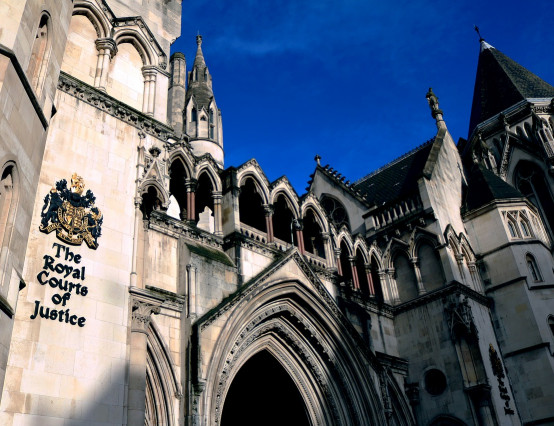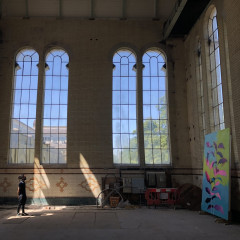October is Black History Month in the UK. This year, with the backdrop of the BLM movement, a debate about it was also secured in the House of Commons. Throughout the debate itself, the issue of black history being taught in schools was repeatedly raised, which sparked some interesting responses.
Opinion was split between those that believed that British history needed to be ‘decolonised’ and others that felt that the British history taught currently hit the mark. As I listened to the debate, the responses against the expansion of the curriculum to include these topics began to take on some similar themes. The theme that I struggled to understand however was that of erasure.
This was not erasure as usually described in debates on education and race, that of the erasure of minority voices and experiences. This was a description of the teaching of black history, becoming an erasure of British history. This concept was alien to me, the idea that teaching England’s colonial and empire building history would somehow negate the history we should be rightfully proud of. In 2020 should we be so selective in teaching the next generation about our nation’s past?
To say that it’s impossible for schools to teach history that might include black figures, or historical periods or events such as the British transatlantic slave trade would be untrue. After all, the curriculum lists a few examples that could be used. At key stage 1 you could learn about Rosa Parks or Mary Seacole. However, Rosa Parks was an American and Mary Seacole is presented as being replaceable by or taught in conjunction with Florence Nightingale. There is no suggestion that Mary Seacole should be taught about on her own, so neither of them particularly focus on black British history.
A little further up at Key Stage 2 there are suggestions regarding studying early cultures and their achievements and studying ‘a non-European society that provides contrasts with British history’. Included in the list of areas and societies here is Benin, but 900-1300 AD Benin so no one needs to get into that messy ‘slave coast’ time period. So again, British history at this point neatly avoids any dealings that might take attention away from the Romans, Vikings or the arrival of Christianity.
Perhaps the greatest opportunity comes at Key Stage 3 which lists its curriculum aims as giving students ‘a historically grounded understanding of terms like ‘empire’, ‘civilisation’, ‘parliament’ and ‘peasantry’.’
Here students can study first contact with India, the British Transatlantic Slave Trade, the development of the British Empire and Indian Independence. So - plenty of ground there for teachers to broach the more problematic elements of Britain’s past there right?
A survey conducted by the organisation ‘impact of omission’ would seem to suggest that this is not the case. The data produced by over 55 thousand respondents showed that only 36.6% of students learned about Transatlantic slavery, 9.9% learned about the role of slavery in the British industrial revolution, and 7.6% of British school children learn about the British colonisation of Africa.
This low uptake can be attributed to a number of factors. From school staff wishing to avoid the delicate conversations these topics can raise, to the simple fact that if they aren’t already taught regularly, slashed budgets may make the cost of teaching new modules prohibitive. This is also supported by a report by TIDE and Runnymede which showed that only 4% of students study the history of migration to Britain. This module was introduced by OCR in 2016, however unless uptake increases the number of students who understand the benefits immigration can bring to the UK will remain limited.
During the debate a point was raised about the way teaching young people from ethnic minority backgrounds about things like white privilege might make them feel. The point of view offered was that it would be demotivating for them, to feel like the deck was stacked against them and that any effort given would be wasted. I’m not sure I’d agree with this for two reasons. Firstly, I can’t think of a situation when being unaware of adversity makes it easier to overcome. Secondly because that train of thinking only works in a world where white privilege and systemic racism don’t exist.
That however, also seemed to be considered questionable to certain speakers. Indeed during the debate it was confirmed that teaching children that white privilege is a fact is illegal in UK schools. This ties in with recent government guidance in which teaching the oppressive history of the United Kingdom is deemed to be ‘divisive’ because it portrays a ‘victim narrative’.
Well the truth of the matter is that Britain has victimised other nations in its past, and it isn’t innocent of white centric colonialism. As a white male with working class roots, I see no reason why this should be divisive. If, as many said during that debate ‘Black history is British history’ then that history is part of my heritage. To be proud of my country, don’t I need to appreciate where it has been as much as where it could go?
The idea of motivation however did make me wonder what message a seeming separation of black history from British history could do to discourage immigration to the UK. After all, if we are so willing to alter the history of contributions made by those brought to these shores against their will, would we do the same to those that choose to come here now?
If we fail to recognise the ways in which victims of our colonial past have shaped our nation, would we recognise the contributions brought to these isles by those who weren’t born here?
As I see it, our history should show us how far we’ve come. The parts of our shared history that we should be ashamed of, inform us of the things we need to correct. Our mistakes should form the foundations for our progress. We can not move forward, if we don’t appreciate everything we’ve left behind. In order to do that, we need to teach our history in its entirety.
--
Tom Huggins-Teasdale is a Political Correspondent for immigrationnews.co.uk, a website dedicated to highlighting immigration injustice and news.







0 Comments